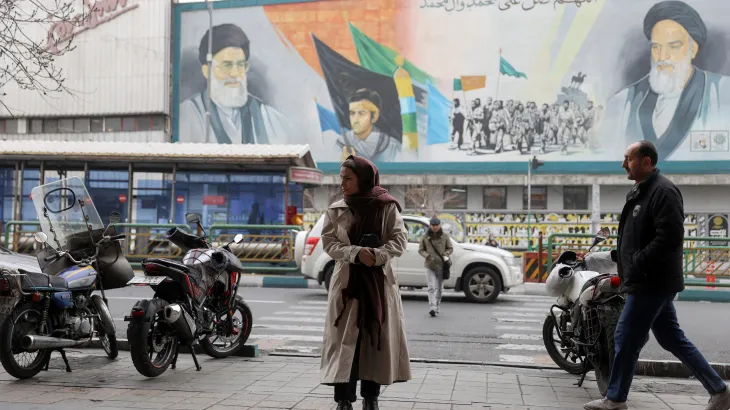





















.webp&w=256&q=75)



Loading banners


NEWS EXPRESS is Nigeria’s leading online newspaper. Published by Africa’s international award-winning journalist, Mr. Isaac Umunna, NEWS EXPRESS is Nigeria’s first truly professional online daily newspaper. It is published from Lagos, Nigeria’s economic and media hub, and has a provision for occasional special print editions. Thanks to our vast network of sources and dedicated team of professional journalists and contributors spread across Nigeria and overseas, NEWS EXPRESS has become synonymous with newsbreaks and exclusive stories from around the world.

One has not seen in recent times any other issue that has stirred up controversy, and even a public hysteria, as much as the claim that Senator Sani Yerima of Zamfara State had forced the Nigerian Senate to sanction under-age marriage in relation to the amendment debate over Section 29(4) of the 1999 Constitution of Nigeria. That could not be true. But why would everybody readily believe it?
To understand how that could not be true, let us examine the constitutional provision in question. Section 29(4) of the Constitution provides thus:
“29. (1) Any citizen of Nigeria of full age who wishes to renounce his Nigerian citizenship shall make a declaration in the prescribed manner for the renunciation.
(2) The President shall cause the declaration made under subsection (1) of this section to be registered and upon such registration, the person who made the declaration shall cease to be a citizen of Nigeria.
(3) The President may withhold the registration of any declaration made under subsection (1) of this section if-
(a) the declaration is made during any war in which Nigeria is physically involved; or
(b) in his opinion, it is otherwise contrary to public policy.
(4) For the purposes of subsection (1) of this section.
(a) “full age” means the age of eighteen years and above;
(b) any woman who is married shall be deemed to be of full age.”
Please pay close attention to Subsection (4)(a) and (b) above. That was the portion that was in issue. It is clear even at a glance that even though the terms “full age” and “marriage” were used in that provision, they have nothing to do with the “legal age of marriage”.
I emphasize this point because I too had joined in the public reaction and thought that this “evil” Yerima was up to his “habitual” mischief of messing around with underage wives. But having carefully re-examined the issue, I came to a different conclusion and I decided to prepare this report.
Section 29 of the Constitution only deals with citizenship. It deals with the age at which a person could make a declaration to renounce his or her Nigerian citizenship. The provision chose 18 years as the age of at which a person is free to renounce his or her Nigerian citizenship. The constitution could have chosen 17 or 21 as the age at which a person could make such declaration. But it chose 18, which it calls the “full age”. Then the constitution goes further to define how the “full age” would be interpreted. And it says that “full age” shall be 18 years with one exception, when it could be less than 18 years or indeed, when the proof of age shall be presumed. And that exception is that “any woman who is married shall be deemed to be of full age”. That is what has caused so much confusion.
Now, put on your legal thinking hat and move along with me. Let’s swag legally together. What the constitution is actually saying is that a person must PROVE that he is 18 in order for him to renounce his Nigerian citizenship. OR if the person cannot prove the age, and happens to be a woman, she only needs to prove that she is married. I will explain this later.
First, Section 29 of the Constitution has nothing to do with the age of marriage per se. People who oppose this provision do so because, according to them, it seems that the Constitution is suggesting that a woman could be married at an age lower than 18 (indeed, any age), and then be bumped up to the status of “full age” by the mere act of marriage. But that cannot be what the Constitution meant. Indeed, it would seem rather strange to interpret the provision in such a manner.
Second, what if instead of “any [woman] who is married” the provision had read “any [person] who is married”? Would there still have been this controversy? Probably not. The problem is the emphasis on “woman” exclusively of men.
Thirdly, our law generally allows consensual sex at age 15 or 16. That ought to be the critical testing point – consensual sex. Once a person attains the age of consensual sex, he or she should be able to marry legally, though a country could have different ages for consensual sex and for marriage. But that creates a wrong incentive of encouraging a couple that could have gotten married to simply delay marriage while having sex and waiting to attain the legal age for marriage. So, if a “woman” could get married at age 17 legally, the Constitution allows such a “woman” to be able to renounce her Nigerian citizenship after marriage but before she is actually 18. That is called an age-booster clause. There should be nothing unreasonable about that. The Constitution is merely expressing the view that a married 17-year-old lady is responsible enough to make certain decisions reserved for people that are 18 and above.
Fourthly, but why did the Constitution focus on “woman” as opposed to “person”? Indeed, the meaning of the term “woman” is quite curious. Who is a woman? It actually suggests that the Constitution could never have contemplated under-age girls because those would not be classified as “women” under any rule of interpretation. So, it is fair to say that Section 29 of the Constitution has nothing to do with young girls or underage marriage at all.
Fifthly, it is totally likely that the Constitution meant “women” of any age above 18, including ages 23 to 30, rather than women of any age under 18. How does that work? Simple: Remember that for a person to be able to renounce her citizenship, she would be required to show that she is of “full age”, i.e., that she is at least 18. How do you show that ordinarily? You would have to produce your birth certificate. That could be a heck of trouble for many Nigerians. But if you are a woman, all you need to overcome the requirement for proof of age or showing of birth certificate is to come with your marriage certificate instead. You must realize that even those that are 28 years old may find it difficult to show that they are up to 18 without a birth certificate. Indeed, there is no easy way to prove age than by birth certificate. And many Nigerians don’t have that handy. So, all a woman does is to produce her marriage certificate instead and that would excuse the requirement for her to prove she is 18. This has to be the only logical interpretation of that section of the Constitution.
Sixthly, because of the fact that this section of the Constitution does not deal with marriages or age of marriage, it would not contradict or nullify any other law in the land that deals with the age of marriage. I understand that a recent law makes that age 18.
What then was the problem with Yerima? Simple: the problem actually started with some activists who were determined to make sure that there was no loophole for excusing underage marriages. So, these activists misread section 29 of the Constitution to be sanctioning underage marriages and they demanded that Section 29, subsection (4) be removed in the on-going constitutional amendment process. That was the first error. The second error was for Yerima, almost moving in the opposite direction with his archenemies (the activists who have pestered him for marrying a 13-year-old Egyptian girl), decided to treat section 29 as if it was a marriage provision, rather than a citizenship provision. Given this mindset, Yerima made an argument for the retention of the section by basing it on Islamic rules on marriage. Yerima was similarly wrong. And that led to the confusion. In the reported hot personal exchange between Yerima and Senate President David Mark, it would have been great for the Senate President to steer the argument away from the emphasis on age of marriage and Islamic law and simply focus it on how to prove age for the purpose of section 29 of the Constitution.
But why the effort to boost the age of a woman just because she is married? A 17-year-old wife should be able to wait one more year to be able to denounce her citizenship. That is if we take that interpretation. After all, a 17-year-old wife does not enjoy similar age boost for the purpose of voting in elections. Rather, she must wait to be actually 18 in order for her to vote. So, why the age booster for the purpose of section 29 of the Constitution? Indeed, in all other instances that age is required in the Constitution such as the age to contest for certain political offices, there is no similar age booster.
It is clear that Yerima’s reputation is what has driven this controversy in the direction it has gone. His symbolic marriage to a 13-year-old girl against all the protests in the world set him apart as the arch proponent of underage marriage in Nigeria. So, he was really the worst person to make the argument he made on the floor of the Senate over that matter. And, worse still, he based his argument needlessly on Islam, considering the fact that Yerima was the Governor who led the movement for Sharia law over the Constitution of Nigeria. There is no doubt that average Nigerians suspect Yerima, particularly on the issues of age of marriage and Islamic law overreaches.
Whatever the case, the hysteria that has swept most people in this country, including myself, does not seem to be justified. I was already planning on how to organize a protest against Yerima and the Senate. But as I would not undertake any such responsibility without studying the issues carefully, I conducted the research that led to this report.
In conclusion, there is so much to say in support of the agitation that has occurred. Some Nigerian lawmakers really need to be watched and even suspected of mischief. Yerima could be one of them. By reacting in the manner the people did, they have sent a message to all organs of government that the people are watching them and would react if they misstep. The attitude of Nigerian government toward underage sex and underage marriages remains extremely poor and any agitation against that is time well spent. So, let it be that the people cried out even when they should not have.
•Emeka Ugwuonye, Esquire, whose photo appears alongside this piece, is an international lawyer practicing in the US and Nigeria. He is the Group Founder/Principal Administrator of Due Process Advocates (DPA).